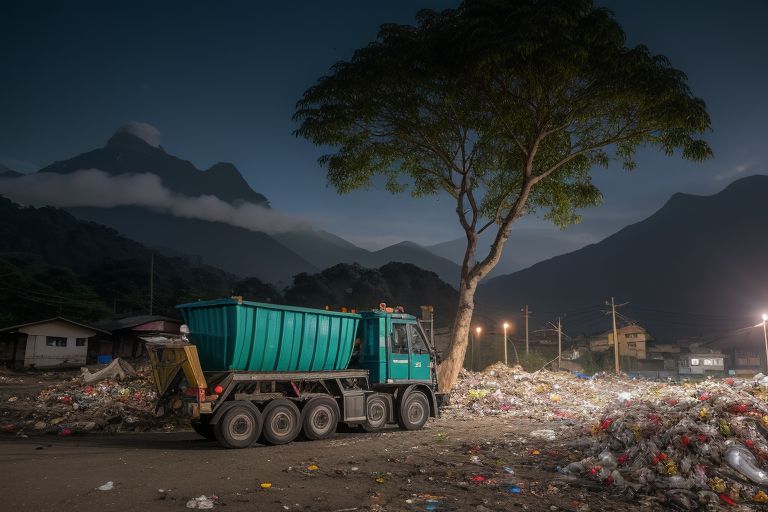As a rapidly developing city with growing environmental problems especially since it has become a top tourist destination, the city of Pokhara has initiated a elaborate waste management program. The program that has been developed by the Pokhara Metropolitan City in cooperation with local and global environmental non-governmental organizations is the effort to change the waste management and recycling system in the city.
This is an ambitious program called ‘Clean Green Pokhara’ which involves new technologies and peoples’ initiatives to solve problem of waste management in the city. As the pivotal stone of the program, a sophisticated waste sorting and recycling plant has been launched recently, and there’s no better witness to it than the mayor of Pokhara, Dhanraj Acharya.
The new facility employs the latest technologies that sort out waste into various categories such as the plastics, papers, metals and biodegradable products. Introducing this automation system is believed to enhance the speed of waste processing further enhance recycling ratios within the city. The organic waste to be collected will be transformed to compost to be used in the local agricultural fields hence providing a market for local farmers.
Mayor Acharya stressed the need of the project telling that ‘‘The city of Pokhara is developing; increasingly it becomes the tourist center; therefore it is important to provide efficient waste management systems. This program is much more than keeping our streets clean- it is about continuing to protecting this beautiful place that is Pokhara.
Apart from the main CP program, the application involves the installation of the smart waste bins across the city. These bins have motion sensors which help in monitoring the fill factor and relay the information to collecting agencies thereby enhancing proper ways of collecting waste and minimizing cases of full bins.
Community involves is an essential aspect of the “Clean Green Pokhara” program. The specific metropolitan city has embarked on a large scale sensitisation program on proper disposal of wastes and recycling. Children across Pokhara are taking the leadership role towards promoting waste management in school, there are recycle and clean up activities.
Local stakeholders especially the business firms especially in the tourist centers are also participating in the program. Businesses in the hotel, restaurants, and cafes have been challenged to reduce their use of plastics and to ensure they embrace composting of the food waste they generate. Some facility managers welcomed these changes openly: they believed they could benefit from highlighting the sustainability of the tourist industry.
In the planned lecture to be presented to Schools and colleges of Pokhara the program has been recognized and has brought in environmentalists from different parts of the globe for study purposes.. Dr. One can only have great words to say about what is being done in Pokhara, remarked Sarah Thompson who is a waste management specialist at the University of California. The presentation of high-tech technologies along with the support of different communities may become the mold for other developing cities which meet the given problems.”
Thorc physicians participating in the program are still largely in training, but the first experiences appear encouraging. The recycling center has started working only in the previous month, but it managed to recycle or compost more than 100 tons of waste collected, and 60% of which were successfully sorted out for recycling or decomposition. This is a very positive change as compared to the previous waste management systems in the city.
The one thing which I must note is that the success of the program has come with quite a number of challenges. A number of people have complained that the new building will be constructed in that area, and there will be more traffic of trucks in some parts. The city administration has constantly been in touch with these constituencies with an aim of listening to their grievances and taking appropriate measures that would suit the program.
Source of funding have included local government budget, grant from international organizations, and from the private sector for the fresh “Clean Green Pokhara ” project. Moreover, the long-term sustainability of the program will greatly depend on the recycling and composting programs that the organization will be implementing, external support from the society and tourism stakeholders included.
While Pokhara has initiative to manage the waste and has been in process to develop effective strategies to manage the waste, other cities of Nepal are also following the same path. Some municipalities from other parts of the country have visited Pokhara for them to study on the project and several of them show their willingness to come up with similar project in their own municipals.
The “Clean Green Pokhara” program is a sign of the new positive trend in the work of Nepali representatives for the management of environmental problems and the implementation of principles of sustainable urbanization. It is on this note that the initiative carries the prospect of rehabilitating Pokhhera while at the same time creating a healthy culture whose impact will extend to other parts of the country and beyond.


